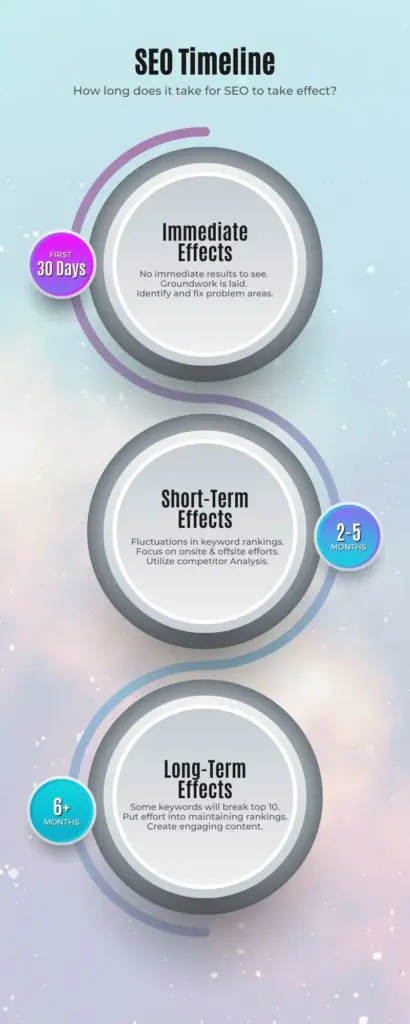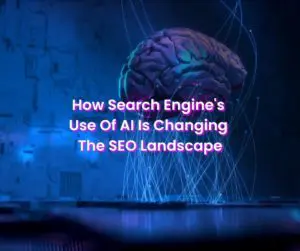Search Engine Optimization (SEO) is the process of optimizing a website to rank higher in search engine results pages (SERPs). It is a vital aspect of online marketing and can help increase the visibility and credibility of a website.
SEO ranking success depends on a number of factors, including the current state of the website, the competitiveness of the industry, and the overall quality of the SEO strategy. Businesses often wonder how long it takes to see results and while there’s no definitive answer, understanding the time frame for SEO success can help manage expectations.

Immediate Effects of SEO Efforts
During the initial 30 days of an SEO campaign, the focus is establishing a strong foundation. This involves conducting thorough SEO audits to identify the problem areas that search engines may have a hard time crawling and reading.
- Use an SEO health audit tools such as Ubersuggest or SEMrush to determine website issues
- Broken links
- Improper format for URL
- Server issues
- Page content and structure issues
- Problems with SSL certificates
- Website speed and & performance
- Confirm your sitemap is properly readable by search engines
- Create meta titles and descriptions for all primary pages
- Add alt text, and descriptions to all media
These initial efforts may not show immediate results in your search console and analytics but it will lay the groundwork for future success.
Short-Term Effects of SEO Efforts
In the next two to five months, you’ll start noticing fluctuations in keyword rankings as search engines recognize and evaluate your website’s relevance. It’s common to see some keywords rise and fall during this period as search engines determine your website’s position in search results.
To maximize short-term effects, it’s important to focus on both onsite and offsite optimization efforts.
- Set up or updating Google my business
- Add toxic backlinks to Google’s disallow list
- Improve meta titles and descriptions of all posts on your site
- Complete competitor analysis
- Update existing website content
- Look for backlinking opportunities
- Create content clusters
Any changes made within this time frame can take several weeks to show results in the SERPs, as it takes time for search engines to crawl and index the changes on the website.

Long-Term Effects of SEO Efforts
Around the six-month mark, the long-term effects of your SEO campaign should become more apparent. Some of your targeted keywords will likely break into the top 10 search results, indicating a significant improvement in visibility. However, maintaining these rankings requires ongoing effort.
Continuously optimize your website
- Create fresh and engaging content
- Build authoritative backlinks,
- Target relevant keywords
Long-term efforts will help sustain and expand your online presence in the long run.
Stopping SEO Efforts
It’s important to understand that SEO is a continuous process, and stopping an SEO campaign abruptly can have consequences. Although the immediate effects may not be noticeable, after approximately six months of discontinuing SEO efforts, your website’s keywords may drop from the top rankings. Over time, your website’s visibility and organic traffic may decline, undoing the progress made during the campaign. Consistency and persistence are key to achieving and maintaining SEO success
While the exact time frame for SEO success varies depending on various factors, understanding the immediate, short-term, and long-term effects of SEO can help you set realistic expectations. SEO is an ongoing process that requires patience, continuous optimization, and quality content creation. By investing time and effort into your SEO campaign, you can expect to see improved search engine rankings, increased organic traffic, and long-term benefits for your business.





